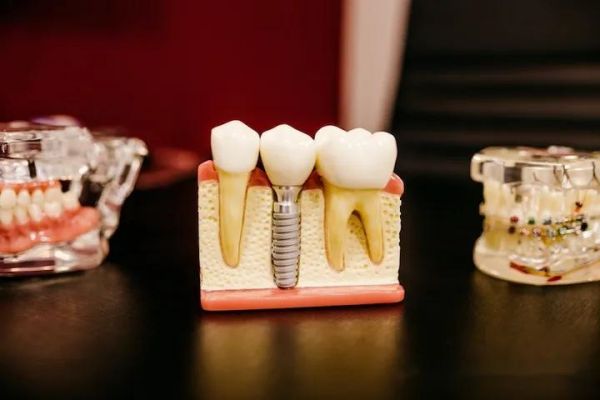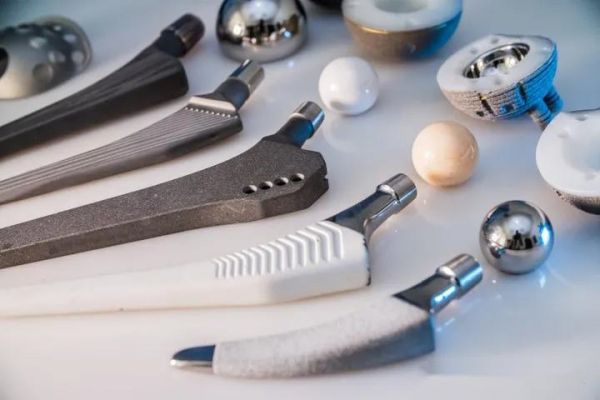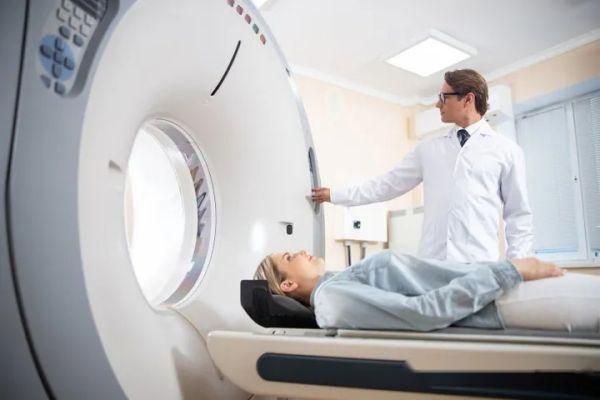
Privacy statement: Your privacy is very important to Us. Our company promises not to disclose your personal information to any external company with out your explicit permission.
1. Hip replacements and knee implants
Like any other machined medical hardware, body implants such as knee implants and hip replacements require a high level of precision and accuracy. The life and well-being of a patient can be significantly impacted by minor errors in the manufacturing process.
Swiss CNC machines help to accurately manufacture patient-specific parts while achieving tolerances as small as 4 μm. the CNC machining center receives a request from an orthopedic surgeon, creates a CAD model, and recreates the body part through reverse engineering and CNC technology.
The medical industry requires these implants to be made from biocompatible materials such as PEEK and titanium. These materials are challenging to machine - they generate excessive heat during machining and the use of coolants is often prohibited due to concerns about contamination. CNC machines are helping to solve this challenge because they have compatibility with a wide range of materials.
2. Surgical tool production
Complex surgical procedures require high-precision, specialized tools. These instruments range from simple scalpels and scissors to complex robotic arms for minimally invasive surgery. These tools must be manufactured with high precision. cnc machining plays a vital role in the production of surgical tools required for various medical procedures.
CNC machines can achieve complex geometries and tight tolerances, making them ideal for producing complex surgical tool designs. For example, robotic-assisted surgical instruments can be machined using CNC technology to ensure the highest level of precision, enabling surgeons to perform complex surgeries with greater accuracy and fewer complications.

3. Electronic medical equipment
Many medical devices (such as MRI scanners, heart rate monitors and X-ray machines) are equipped with thousands of CNC-machined electronic components. Examples include switches, buttons and levers, as well as electronic housings and enclosures.
Unlike implants and surgical tools, these medical devices do not need to be biocompatible because they do not come into direct contact with the patient's internal systems. However, the manufacture of these parts is still largely overseen and controlled by multiple regulatory agencies.
Failure to comply with the standards set by these regulatory bodies can result in significant fines (and sometimes even imprisonment) for machine shops. There have also been cases where medical professionals involved have had their licenses to practice medicine revoked. Therefore, it is important that you choose your medical equipment manufacturer wisely.
4. Customized prosthetics
Personalization is becoming increasingly important in healthcare, and this is most evident in the field of prosthetics. Patients need prosthetic devices that fit their bodies perfectly, and traditional mass-production techniques often fail to meet their needs. cnc machining is changing the field.
cnc machining is transforming the field of prosthetics by producing customized devices based on each patient's unique physiology. cnc machines use 3D scanning and CAD modeling to create prosthetics with intricate detail and high-precision dimensions, ensuring optimal function and comfort for patients.
Using CNC technology, prosthetics can be produced with high precision to ensure comfort and full functionality.

5. Small Orthopedic Hardware
Orthopedic devices such as plates, screws and rods are widely used in the medical field to repair or replace damaged bones and joints. Given the critical role these devices play in patient rehabilitation, it is imperative that they are manufactured with the highest level of precision and quality.
cnc machining plays a vital role in the production of these orthopedic devices. cnc technology is ideally suited for the production of these devices as it is capable of machining complex geometries with high precision. In addition, cnc machining can handle a wide range of biocompatible materials, including titanium and stainless steel, which are commonly used in orthopedic devices.
6. Medical Device Prototyping
Prior to mass production of any medical device, it is critical to create prototypes for testing and validation. cnc machining offers a fast and cost-effective solution for producing medical device prototypes. With the ability to quickly generate multiple iterations of a design, engineers can test and refine the device to ensure it is safe, effective and meets regulatory requirements.
This capability is critical in the fast-paced world of medical device development, where the ability to quickly bring a new product to market can be a significant competitive advantage. cnc machining also allows for the production of low-volume prototypes, enabling manufacturers to minimize waste and save on material costs during the development process.
7. Dental tools and implants
cnc machining is critical to providing high quality dental care through the creation of customized dental tools and implants. Dentists around the world rely on advanced CNC technology for precise treatment. This technology is ideally suited for creating durable instruments such as drills, scalers, probes and forceps that are essential for a variety of procedures.
Producing these instruments requires superior durability to withstand sterilization while ensuring patient safety.CNC manufacturing provides repeatability and stringent quality control, guaranteeing that each instrument meets exacting standards.
Dental implants provide a long-term solution for missing teeth and require precise customization using CNC manufacturing techniques. These implants are created based on digital scans, ensuring an accurate and personalized fit for each patient. cnc machining has revolutionized the fabrication of dental restorations, improving treatment outcomes.
By effectively utilizing materials such as titanium and zirconia, CNC technology enables precise modifications with superior efficiency and results.

LET'S GET IN TOUCH

Privacy statement: Your privacy is very important to Us. Our company promises not to disclose your personal information to any external company with out your explicit permission.

Fill in more information so that we can get in touch with you faster
Privacy statement: Your privacy is very important to Us. Our company promises not to disclose your personal information to any external company with out your explicit permission.